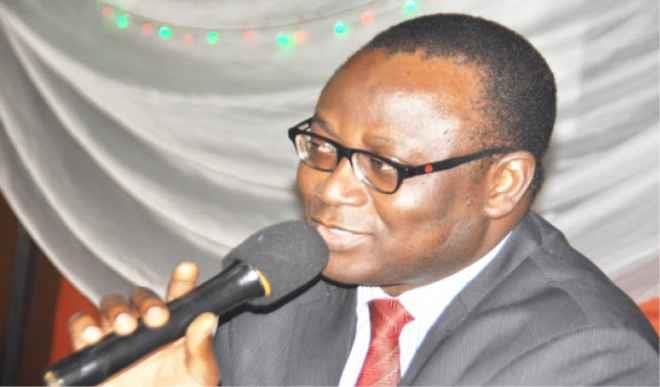Experts want improvement in legal docs
Errors in legal documents like charge drafting, motions, affidavits and written statements are becoming a matter of great concern in legal circles. Law lecturers and senior lawyers said it is now a worrisome trend to see legal documents, which also include letters and memos, permeated with a lot of grammatical and typographical errors. They said […]


Errors in legal documents like charge drafting, motions, affidavits and written statements are becoming a matter of great concern in legal circles.
Law lecturers and senior lawyers said it is now a worrisome trend to see legal documents, which also include letters and memos, permeated with a lot of grammatical and typographical errors.
They said this was not the case in the past.
In a telephone interview, the Director General of the Nigerian Institute of Advanced Legal Studies (NIALS), Professor Adedeji Adekunle (SAN) said the reason for these errors is failure to proofread what has been prepared before filing.
“So many times, professionals rely on their secretariat assistants and this really can lead to some of such grammatical errors, especially where we are talking about a situation where ‘not’ is missed out in an expression like ‘shall not’; that cannot be a case of defect in English, it is more on account of carelessness or haste to beat timeline.
“The second speaks to the level of education in the country but which is still not excusable in certain professions. It is not excusable in legal, journalism, creative and other professions,” he said.
Adekunle said there is serious need to address this issue at most of the formative education institutions, especially primary school. “I believe the lack of attention on grammar which makes the large chunk of the English language should be addressed at the primary school level.
“Generally, it is a reflection of how standard has fallen and what we should do to address it. Much of the law these days has moved from advocacy to writing. This has called for some skills that have been hitherto neglected. Now, you need to write briefs at the high courts and the appellate courts, and if you have just been used to standing up and addressing the court ex tempore, but you now have to speak through your brief and you now notice it is riddled with error, I think that calls for more attention on the part of lawyers. This is because the rules of court make it essential that they should pay more attention to the things they write.”
On whether sanctions should be imposed on erring lawyers, Prof. Adekunle said, “I won’t suggest that. Where such would perhaps lead to a delay or an adjournment that could be avoided, this is already being taken care of by rules of the court. Now, in civil cases, court can impose punitive costs on counsels who unnecessarily waste the time of the court. However, some are not deliberate or mischievous errors, so for the sake of justice, there should be time to amend.”
Also, former President of the Nigerian Bar Association (NBA) and the Chairman of the Legal Practitioners Disciplinary Committee (LPDC) of the NBA, Joseph Daudu (SAN) agreed that the errors are due to the fallen standard of education in the country.
“The qualities of materials you get today are not the same as before. Secondly, people are not reading as widely as they used to in the past. Now, it is social media that takes more of the time. Those days, you would have read the complete works of Shakespeare and most of the famous authors, but if you ask the lawyers that are being trained now to list some of the contemporary literary writers of the 20th and 21st century, they don’t know. It is now a matter of garbage in garbage out. You can’t deliver what you don’t have.”
To correct this trend, Daudu said, “Generally, if you correct from the primary and secondary school levels and people start to read literatures, it will have resounding effects on the quality of English used by lawyers. Some lawyers don’t even know the meaning of certain words in existing judgments or materials of the laws. We are even finding judges that want to write their judgment and change things without knowing the rationale why those things existed.”
He however said it does not need sanctions to correct these errors. “It doesn’t take much time to correct these things. Mistakes and blunders can be made by anybody at any time. It is not a crime to make a mistake. Once detected, you can even ask the person to go and correct it within 24 hours at the top.”
Daudu said sometimes in 1983, he made a mistake of omission in a case before the Court of Appeal and he was corrected and ordered to effect the correction within 24 hours, saying today, they will adjourn for six to nine months to do the same thing.
The Dean, Faculty of Law of the National Open University of Nigeria (NOUN), Professor Akujobi Alero said most of these errors come with lawyers not exactly knowing what to do.
“These things come with practice”, she said, adding, “Law is a profession that requires one to be focused but most of the law students these days are distracted one way or the other. For most of them, the foundation is poor and from that poor foundation, who are the people teaching? If you are half-baked, the people you are going to teach will also be half-baked. It is a circle.”
She said the way forward is for more attention to be paid to the level of education and not just legal education. “Who are the teachers? Are they properly trained? These should be looked into. The political will to effect the essential review must be there.”
